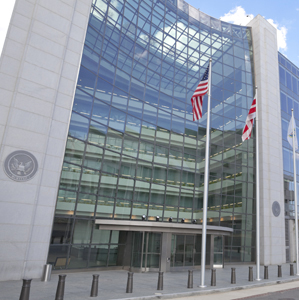Private Equity in SEC Hot Seat: Poor Disclosure, Inappropriate Fees
Recent reports suggest that the private equity industry has been playing games with the fees they get from portfolio companies. Apparently for many years now, they have extracted fees from portfolio companies on the basis of typically vague language in their limited partner agreements. This allows them to appropriate a range of fees from portfolio companies.
Here is what Andrew J. Bowden, director of the SEC’s Office of Compliance Inspections and Examinations, said in a recent speech:
“Many limited partnership agreements are broad in their characterization of the types of fees and expenses that can be charged to portfolio companies (as opposed to being borne by the adviser). This has created an enormous grey area, allowing advisers to charge fees and pass along expenses that are not reasonably contemplated by investors. Poor disclosure in this area is a frequent source of (SEC) exam findings. We’ve also seen limited partnership agreements lacking clearly defined valuation procedures, investment strategies, and protocols for mitigating certain conflicts of interest, including investment and co-investment allocation.”
SEC Chair Mary Jo White was even sharper in her recent testimony to Congress. White noted that recent SEC compliance examinations of hedge fund and private equity fund managers have revealed some very disconcerting actions. Namely, charging improper fees to investors and portfolio companies.
“Some of the common deficiencies from the (SEC compliance) examinations of these advisers that the staff has identified included: misallocating fees and expenses; charging improper fees to portfolio companies or the funds they manage; disclosing fee monitoring inadequately; and using bogus service providers to charge false fees in order to kick back part of the fee to the adviser,” White said.
Let’s examine these things through the integrity lens.
First, the level of clarity, and maybe even truthfulness, around informing investors of all the fees you extract as a fund manager is worth noting. More importantly, what will the fund manager, typically the general partner (GP) of a limited partnership fund, be doing with these fees: keeping or sharing?
Second, are the activities generating such fees, typically services being supplied by the GP to a portfolio company, supposed to be regulated in some way? There is growing interest in general partners registering as a broker/dealer to even accept these fees in the first place.
Thirdly, are the investors in these funds paying attention? Alarm bells ought to be going off in their heads over what is actually happening with these investment vehicles. In terms of general partners respecting these investors, and these investors likewise respecting their own beneficiaries, it is the sharing question for which there should be no doubt. How much goes into the GP’s pocket versus theirs?
Challenged as they are with tight budgets, it is heartening to see the SEC examiners pick up on these potentially important investor issues in an opaque industry. Investors have their own part to play in negotiating and monitoring contractual terms that lend more clarity to the risks, rewards, and obligations of limited partners.
If you liked this post, consider subscribing to Market Integrity Insights.
Photo credit: ©iStockphoto.com/qingwa


Thank you for this concise, thoughtful analysis. It is a pleasure to read something as well-written as this.